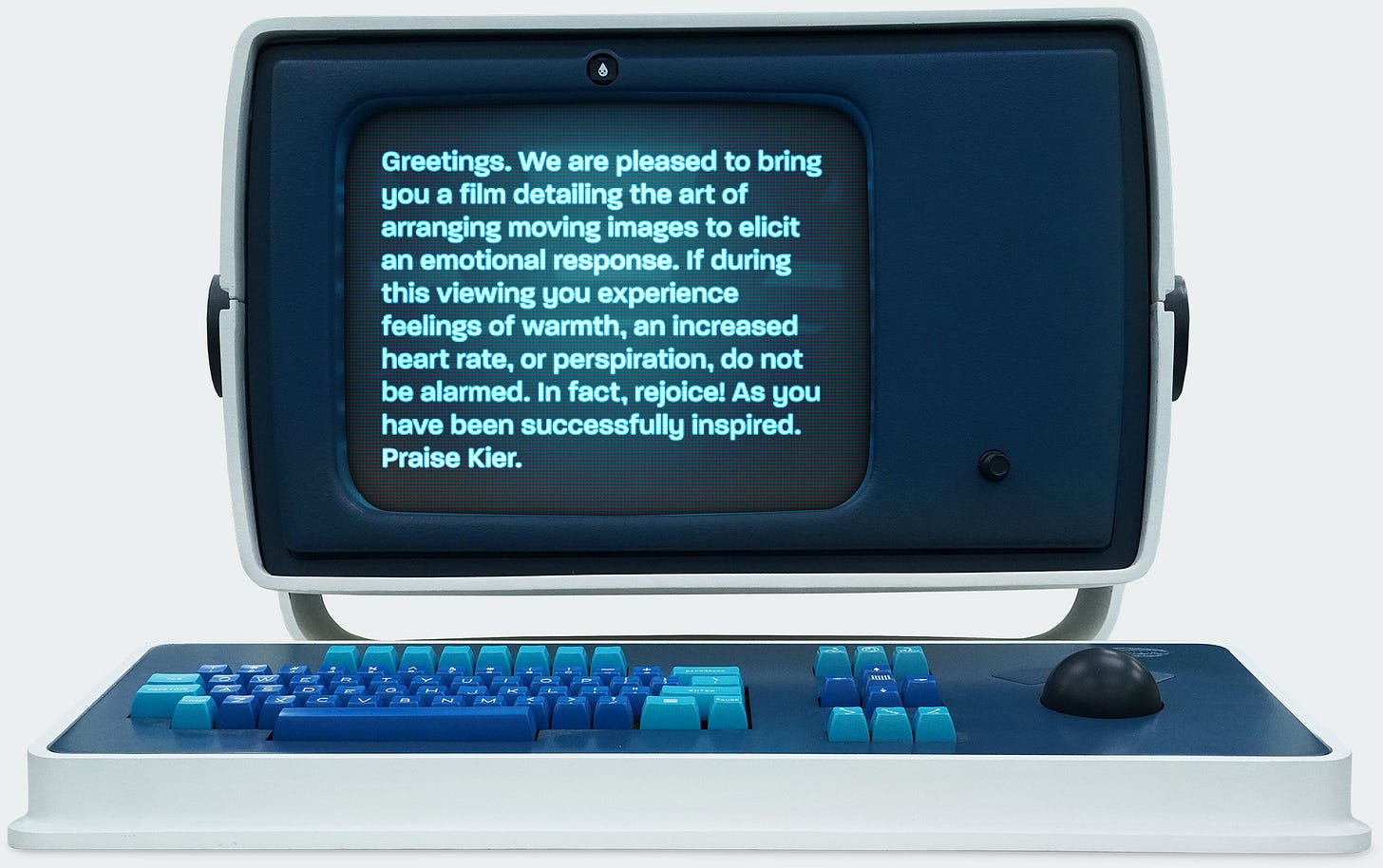The Broadmind Business & Innovation Tracker
How leading brands are using creativity, strategic partnerships and bold acquisitions to navigate uncertainty and win over consumers.
In this edition of PSFK's Business and Innovation Tracker from Broadmind, we unpack how industry leaders are combining cultural insights, smart investments and fresh thinking to stand out and remain relevant. Whether it's Apple's clever "Severance" stunt, a reflection on PepsiCo's savvy acquisition of Poppi, or Meta's new approach to ad sales, these stories highlight the critical role innovation plays in building lasting consumer connections and staying ahead.
So first off, we talk about Severance again and Apple again. They're taking fans deeper into the world of their hit Apple TV+ show by showcasing an entirely fictional computer—the Lumon Terminal Pro. Styled as a vintage, retro desktop complete with blue mechanical keys, this eye-catching prop actually sits alongside Apple's real laptops and iPhones on their website—but instead of adding it to your cart, clicking it takes you behind the scenes. Apple teamed up with series editor Geoffrey Richman and executive producer Ben Stiller for a short film illustrating how they pulled together the dramatic finale of season two. Smart move to keep fans tuned in until that next season arrives.
Next up, Meta is trying to shake things up in advertising. They're starting principal-based ad buying agreements with major ad agencies—which basically means agencies will buy large batches of ad space directly from Meta, then resell that inventory to their own clients. It's a strategic change that generates steadier revenue streams for both parties and keeps agencies closely tied to Meta's platforms. Pair this with Meta's powerful “Andromeda” machine-learning system and growing AI capabilities, and they're clearly positioning themselves at the heart of the evolving ad industry.
Over at AdWeek, they have a great opinion piece on the lessons we can take on how the brand Poppi designed its way to a nearly two billion dollar acquisition. CBX's Mark Christou says that Poppi is a strong example of how design-focused branding and authentic social media presence resonate with younger consumers. With this move, especially after losing their creative chief Mauro Porcini, PepsiCo seems to signal that their future might involve buying culturally vibrant brands rather than solely building their own.
On the consumer tech front—Xiaomi just dropped something special for mobile photography fans. Their new 15 Ultra smartphone taps into classic Leica camera aesthetics and features a whopping 200-megapixel Samsung ISOCELL telephoto lens, plus Leica-engineered camera software, all wrapped in stylish ceramic and vegan leather finishes. Bonus: there's even an optional photography kit with a comfy grip and physical shutter button. This move definitely puts Xiaomi in stronger competition with big names like Apple and Samsung for serious content creators.
Uber continues their push into affordable airport transportation: they've just launched a JFK Airport shuttle starting at $10 until April 30, with prices moving to $25 after that introductory offer. Shuttles run every half-hour from popular Manhattan and Brooklyn transit stops, letting travelers avoid pricier trips. This budget-friendly shuttle matches their successful LaGuardia service launch, clearly aiming to build customer loyalty through more economical transportation options.
Swedish fashion retailer H&M has released its first quarter earnings for 2025, showing modest growth in a challenging retail landscape. The company reported sales increased by 3% in Swedish krona, while maintaining a healthy gross margin of 49.1%. Despite this growth, H&M is seeing weaker performance in key markets including Northern Europe and the United States. The company has been strategically trimming its physical footprint, closing 160 underperforming st
Next, Levi's CEO Michelle Gass has been discussing how the iconic denim brand is navigating through cautious consumer spending by accelerating their direct-to-consumer strategy and branching out beyond classic jeans. At the recent Shoptalk Spring conference, she outlined plans to open 50 to 60 new stores by 2025 and roll out exciting product collections—including upgraded women's lines and a collaboration with Beyoncé. The strategy seems like a good way to steer Levi's through the current ups and downs in consumer confidence.
Here's another one, from Puma: they've teamed with Re&Up Recycling Technologies to turn clothing waste into recycled fibers for new products. This partnership directly moves Puma closer to their ambitious Vision 2030 goal of using 30% recycled polyester, addressing one of fashion's toughest sustainability issues head-on. They’re clearly making meaningful progress toward more circular, responsible fashion practices.
And finally, a quick note on a restaurant in London called "The Lavery" bringing more than just dinner to the table. It's honoring a neighborhood area's cultural roots by creating an experience themed after famous portrait artist John Lavery. Bringing together compelling storytelling, thoughtful design, and South Kensington’s history, guests get a dining experience enriched by the district's rich artistic heritage.
That's today's rapid roundup of surprising moves and trends shaking up the business landscape. Hope you enjoyed—and catch you next time!








